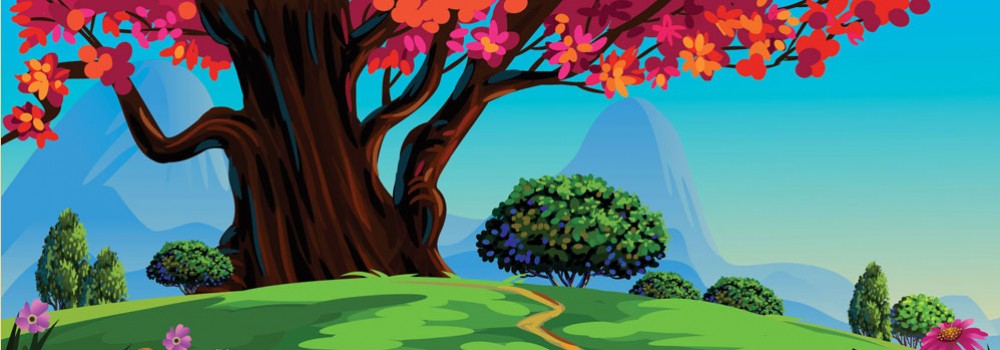My brother, David, and I grew up when Easter preparations were more homemade than commercial. Iced Lebkuchen bunnies and chicks (honey and almond cookies) were nestled in baskets ringed with crepe paper ruffles. When we outgrew the riot of Easter egg hunts in her garden, one of our grandmothers raided her sewing box and our Grandfather’s ties for silk to cut, wrap, and dye eggs. Our other grandmother always dyed eggs wrapped in yellow and purple onion peels. They taught us with endless patience, and finally we couldn’t wait to unwrap our surprise masterpieces and compete for the “best egg.” There were days of cooking and baking, and choosing outfits for Easter Sunday church. But there was one thrill at the top of the list.
We could receive a brightly colored chick or duckling for Easter, before the age of political correctness, environmental fanaticism, and all the other recent catch-phrases behind which many masquerade. Looking as though they had just popped forth, sprightly and downy, from dyed eggs of rich purple, fuchsia, turquoise, and green, the chicks regarded us warily through shiny black dots and let out faint cheep-cheeps. As soon as the important choices of which color to claim and a name for each were out of the way, the new babies were gingerly carried home to a waiting pen in the back yard. We watched their daily progress while attending to the necessary aspects of feeding, watering, and changing paper. Caring for them taught us that pets are dependent, but have vastly different needs, one of which was that these little guys needed to be handled a little rather than a lot.
The soft round fluff matured into larger oval bodies with white feathers which would run on spindly three-toed stilts to meet our call and perch on our laps and shoulders. We understood that these pets lacked the devotion of a dog, but did not require the long-term commitment from us. Each animal was to be treated responsibly, was not a disposable toy, and had needs which sometimes required attention before our own. These values used to be called duty, pride of ownership, and delayed gratification – qualities that come in handy growing up and which seem natural when acquired early. We didn’t have to waste a lot of adult time feeling inadequate since we had practiced capability early in life.
Fortunately for our parents, our maternal grandmother raised chickens (as did many other women who began this practice during the Great Depression to help feed their families). We were taught that, just as with wild birds nursed in cardboard boxes from time to time, these little Easter chicks and ducks would eventually need to be freed with others of their kind so that they could lay eggs, have more chicks, and participate in life’s cycles. It was always a greatly anticipated event to pack a picnic and take the ducks to a farm pond or a park where we watched them claim their freedom. There we carried them flapping outstretched wings, melding into a blur of white, gliding effortlessly with others until, at last, squinting, we lost track of just which ones were the new arrivals.
The same was true for our chicks. We would run to our grandmother’s chicken coop and exercise yard for after-school visits until the last color left their fully feathered bodies, making recognition imperceptible. Now they were grown birds with duties of their own, and we were impatient for summer pursuits in our own “secret garden.” We played in sunny patches at the fringes of a huge oak planted from an acorn the day our mother was born. There were searches for that elusive four-leaf clover, pill-bug counting contests, and butterfly catch and release chases. At last, we’d collapse into shady lawns to search out cloud animals drifting through blue above, our fingers aromatic and sticky with homemade fruit juice popsicles and grass. This was our Walden.
At day’s end, scrubbed and tired under cool white sheets, listening to crickets sawing sounds outside our open window, we were barely aware of a far-off train whistle as our heavy lids gave up their struggle to the peaceful dreams of a tender childhood.
